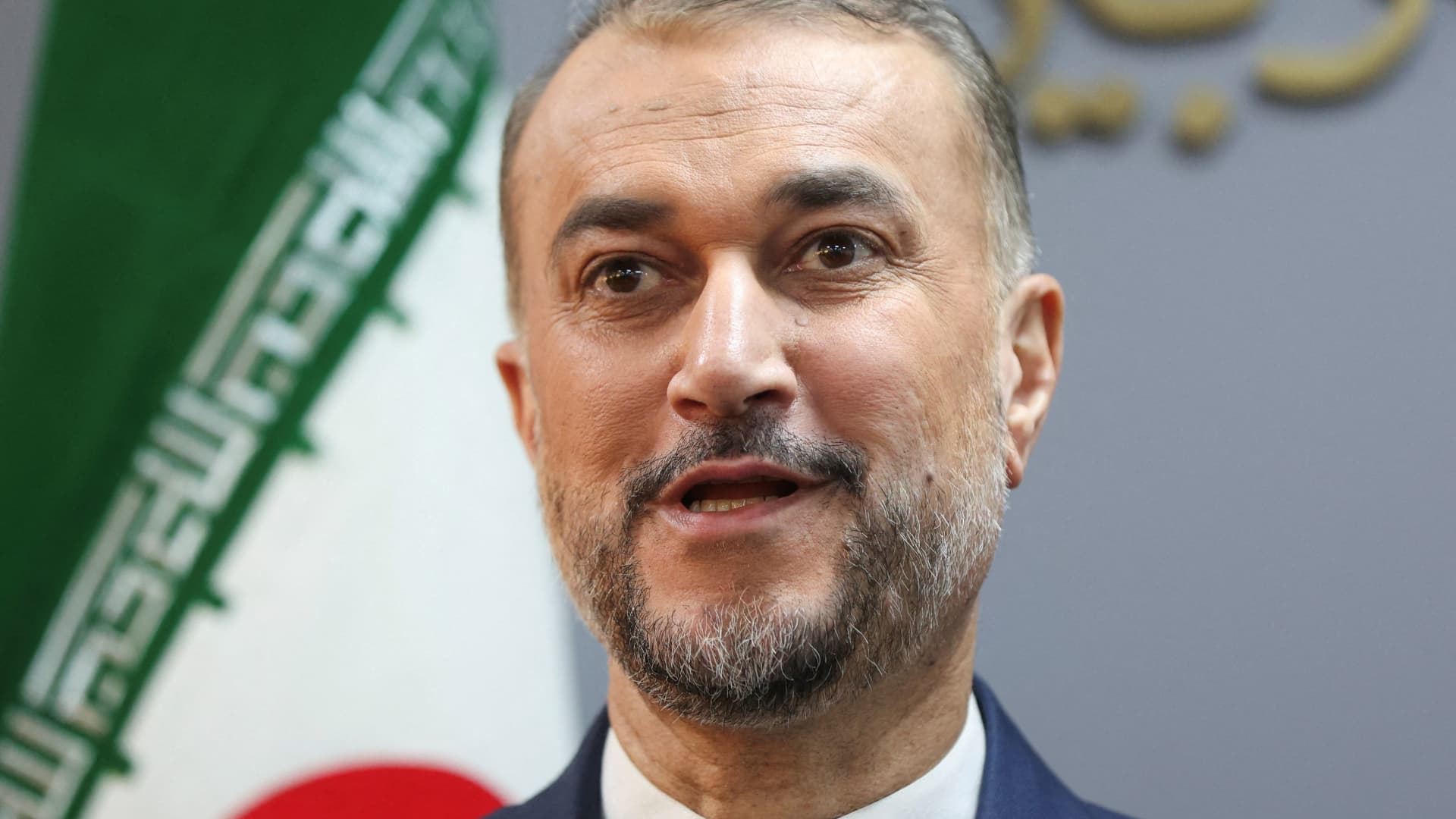Iranian foreign minister says it will not escalate conflict and mocks Israeli weapons as âtoys that our children play withâ

Iran’s foreign minister on Friday refused to acknowledge that Israel was behind the recent attack on his country and described the weapons that were used as more like children’s toys.
“What happened last night was not a strike,” the foreign minister, Hossein Amirabdollahian, said in an interview with NBC News’ Tom Llamas. “They were more like toys that our children play with â not drones.”
Amirabdollahian, who spoke to NBC News in New York where he was attending a U.N. Security Council session, said Iran was not planning to respond unless Israel launches a significant attack.
“As long as there is no new adventurism by Israel against our interests, then we are not going to have any new reactions,” he said.
But the foreign minister warned that if Israel did attack Iran, the response would be swift and severe.
“If Israel takes a decisive action against my country and this is proven to us,” he said, “our response will be immediate and to the maximum and will cause them to regret it.”
The recent cycle of violence between Israel and Iran began on April 1 when Israel bombed an Iranian consular building in the Syrian capital of Damascus, killing two generals and five officers in the Iranian Revolutionary Guard Corps.
Iran responded 12 days later, launching an unprecedented, direct military attack on Israel involving more than 300 missiles and drones. The assault caused no significant damage, however. Nearly all of the missiles and drones were intercepted by Israeli, U.S. and other allied forces.
Amirabdollahian said the attack was intended to be “a warning.” “We could have hit Haifa and Tel Aviv,” he said. “We could have also targeted all the economic ports of Israel.”
“But our red lines was civilians,” he added. “We only had a military purpose.”
Although Israel has been locked in a shadow war with Israel for decades, with Iran arming and training proxy forces hostile to Israel in Lebanon, Syria, Yemen and the Palestinian enclave of Gaza, the Iranian aerial barrage marked the first time Tehran had staged an overt military attack on Israel.
In the days that followed, the Biden administration urged Israel to exercise restraint and not conduct a retaliatory attack that could trigger a full-blown war between the two longtime adversaries.
Israel, though, retaliated on Thursday night, striking a military airfield near the city of Isfahan in central Iran. Nuclear facilities in the area were not damaged, according to Iranian state media, and there were no reports of casualties.Â
The attack was downplayed by Iranian state media and met with mostly silence from Israeli officials. The limited scope of the strike and the lack of public statements afterward appears to indicate that both sides are looking to ease tensions, experts said.
U.S. officials called for calm. “We do not want to see this conflict escalate,” White House press secretary Karine Jean-Pierre said Friday.
The Biden administration has accused Iran of being “complicit” in Hamas’ Oct. 7 attack on Israel, citing Tehran’s years-long effort to arm and train Hamas militants in the Gaza strip.
Iran touts its support for Hamas but the government has said it did not order or coordinate the Oct. 7 attack on Israel, which killed some 1,200 people.
In his interview, Amirabdollahian said Iran had no prior knowledge of Hamas’ attack. He also said Hamas was not a terrorist organization but a liberation movement opposed to Israeli occupation of Palestinian land.
He called Israeli Prime Minister Benjamin Netanhayu “unhinged” and blamed the Israeli government for the stalled hostage negotiations. He accused Israel of making excessive demands to compensate for its failure to meet its objectives in the war in Gaza.
“It has not been able to destroy Hamas or to arrest the leaders inside Gaza, has not been able to disarm Hamas, has not been able to destroy the weapons and equipment,” Amirabdollahian said.
“Therefore it had to resort to killing women and children,” he added, “and now at the negotiating table, they are trying to get what they could not get on the ground.”
Still, the foreign minister said he hopes that a deal will be reached soon for the release of the hostages as part of a broad settlement. Hamas is “ready to go ahead with the release of the prisoners within the format of a humanitarian political package encompassing everything.”
“I think now is a good time,” he said. “There is a good chance for this.”




